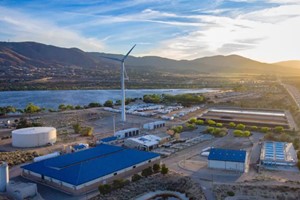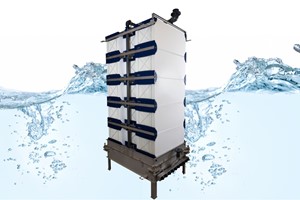NX Filtration, a global leader in advanced hollow fiber membrane technology, is pleased to announce that it will supply its hollow fiber nanofiltration membrane modules to an indirect potable water reuse system in Mexico, marking NX Filtration’s largest project to date. The project was awarded by SAPAL (Sistema de Agua Potable y Alcantarillado de Leon), the Mexican water utility, and will be delivered through EcoAzur, distributor of NX Filtration’s products in Mexico.
The project, part of SAPAL’s ERA (Estaciones Regeneradoras de Agua, or Water Regeneration Stations) program aims for the production of drinking water based on water from the Desbaste wastewater treatment plant, in an indirect potable reuse (IPR) scheme including hollow fiber nanofiltration (HFNF) and advanced oxidation technologies. This water reuse concept is an important step to address water scarcity issues in the region. The project will be executed in 2 phases with a capacity of 17 Million Liters per Day (MLD) each, with the awarded contract covering phase 1.
This marks another repeat project for NX Filtration, as SAPAL already successfully operates a smaller wastewater recovery project based on NX Filtration’s technology since 2022.
The application of NX Filtration’s hollow-fiber nanofiltration membranes will ensure efficient and cost-effective, and largely chemical free, water treatment contributing to enhanced water quality and environmental sustainability at the world’s largest scale today.
"This project represents a significant milestone in our journey towards achieving water security and resource conservation," added Fernando Cortés, Managing Director at EcoAzur. "We are confident that this project will serve as a benchmark for future initiatives in Mexico and around the world."
"We are thrilled to be part of this innovative project, which highlights our dedication to delivering sustainable water solutions worldwide," said Alejandro Roman, CCO at NX Filtration. "This continuation of our collaboration with SAPAL and our Mexican partner EcoAzur underscores the importance of advanced membrane technology in addressing water challenges and creating a water positive future."
The project is expected to be commissioned before the end of 2024. SAPAL's intention is to subsequently release the tender for phase 2, doubling the capacity and therewith further highlighting the long-term impact and scalability of the project.











